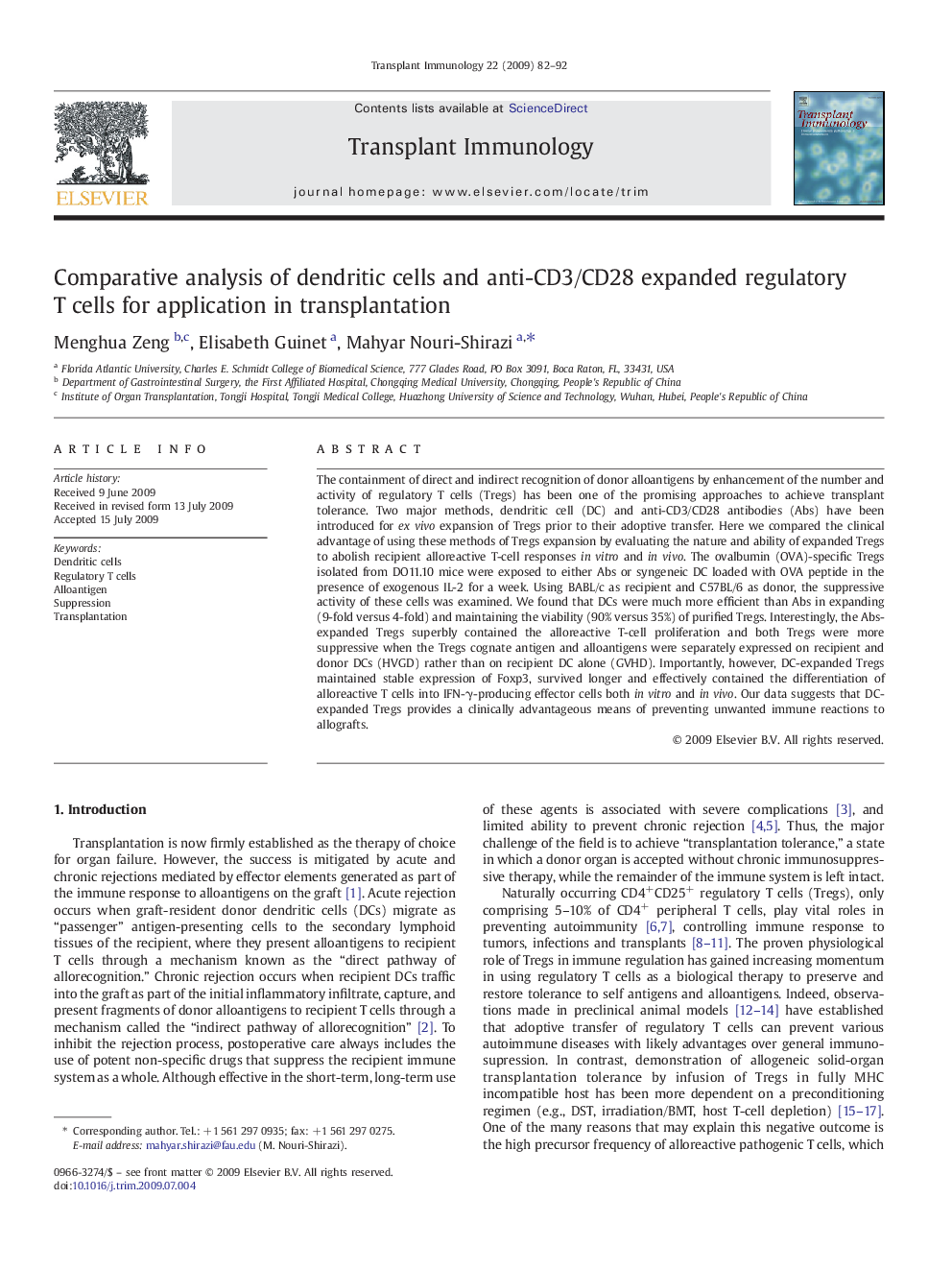| Article ID | Journal | Published Year | Pages | File Type |
|---|---|---|---|---|
| 3392398 | Transplant Immunology | 2009 | 11 Pages |
The containment of direct and indirect recognition of donor alloantigens by enhancement of the number and activity of regulatory T cells (Tregs) has been one of the promising approaches to achieve transplant tolerance. Two major methods, dendritic cell (DC) and anti-CD3/CD28 antibodies (Abs) have been introduced for ex vivo expansion of Tregs prior to their adoptive transfer. Here we compared the clinical advantage of using these methods of Tregs expansion by evaluating the nature and ability of expanded Tregs to abolish recipient alloreactive T-cell responses in vitro and in vivo. The ovalbumin (OVA)-specific Tregs isolated from DO11.10 mice were exposed to either Abs or syngeneic DC loaded with OVA peptide in the presence of exogenous IL-2 for a week. Using BABL/c as recipient and C57BL/6 as donor, the suppressive activity of these cells was examined. We found that DCs were much more efficient than Abs in expanding (9-fold versus 4-fold) and maintaining the viability (90% versus 35%) of purified Tregs. Interestingly, the Abs-expanded Tregs superbly contained the alloreactive T-cell proliferation and both Tregs were more suppressive when the Tregs cognate antigen and alloantigens were separately expressed on recipient and donor DCs (HVGD) rather than on recipient DC alone (GVHD). Importantly, however, DC-expanded Tregs maintained stable expression of Foxp3, survived longer and effectively contained the differentiation of alloreactive T cells into IFN-γ-producing effector cells both in vitro and in vivo. Our data suggests that DC-expanded Tregs provides a clinically advantageous means of preventing unwanted immune reactions to allografts.
